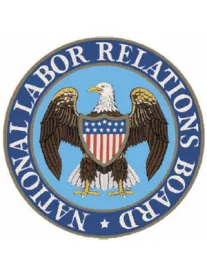The National Labor Relations Board (NLRB) issued a supplemental decision on May 20, 2020, finding lawful a policy prohibiting employees from possessing or using their cell phones on the manufacturing floor or at their workstations. In Cott Beverages Inc., Case 16–CA–181144, the Board’s majority held that Cott Beverages Inc. had legitimate business interests that outweighed the “relatively slight risk” that the cell phone policy would interfere with its employees’ right to engage in activity protected under the National Labor Relations Act (NLRA). The decision provides useful guidance to employers that have facially-neutral policies prohibiting the use of cell phones on manufacturing or production floors.
Background
Cott is a beverage manufacturing company producing and packaging carbonated soft drinks, juices, and purified water. It operates several facilities nationwide, including one in San Antonio, Texas. Production and warehouse employees in Cott’s San Antonio facility are subject to companywide and facility-specific rules.
One of Cott’s companywide policies provided, in relevant part, “Clothing and personal belongings, such as . . . personal cell phones are not to be kept at the work station. These items are to be stored in lockers or in your personal vehicle.” (Emphasis added.) Similarly, Cott’s San Antonio facility-specific rules provided, in relevant part, “Personal items (items not directly related to production processes or job requirements) are not allowed in work areas. These include . . . cell phones . . . etc. These may be kept in an associate’s locker and may be used during break periods in designated areas.” (Emphasis added.) Critically, these rules prohibited cell phones only in working areas.
The general counsel of the NLRB argued the cell phone bans violated Section 8(a)(1) of the NLRA because they infringed on employees’ Section 7 rights to take photographs and to record audio and video in the workplace. Cott argued the bans were necessary for two primary reasons. First, the prohibition on cell phones helped avoid contamination in the beverage production process and were developed in response to U.S. Food and Drug Administration (FDA) requirements that employers minimize hazards inherent in beverage production. According to the company, the prohibition of personal items from its production area minimized the risk of items coming loose and contaminating beverages. Second, employees subject to the cell phone rules drive forklifts in and out of the production area. The company argued that the ban was therefore necessary to reduce the risk of accidents associated with forklifts.
The administrative law judge (ALJ) rejected Cott’s justifications and agreed with the general counsel. It determined the bans indeed violated Section 8(a)(1) of the NLRA and further held that Cott could have promulgated narrower rules to achieve its stated goals.
The NLRB’s Analysis
The NLRB reversed the ALJ’s decision regarding the cell phone ban. It began its analysis by providing a brief recap of the Boeing standard for determining whether a facially-neutral work rule, reasonably interpreted, would unlawfully interfere with, restrain, or coerce employees in the exercise of their Section 7 rights. Under Boeing, the NLRB must evaluate two factors: (1) the nature and extent of the potential impact on NLRA rights; and (2) whether any adverse impact on NLRA rights is outweighed by justifications for the rule.
In conducting this evaluation, the Board endeavored to strike the proper balance between the employer’s asserted business justifications for the policy against the extent to which the policy interfered with employee rights under the NLRA, viewing the rule or policy from the employees’ perspective. Here, after determining the cell phone ban was a “relatively slight” infringement on the employees’ Section 7 rights, the NLRB turned to Cott’s asserted business justification for the work rule. In so doing, the NLRB noted that the broad prohibition on personal cell phone possession on the manufacturing floor or employee workstations was a “reasonable, lawful effort” to ensure integrity of the beverage production process and satisfy FDA requirements. In addition, the cell phone ban was a reasonable way to reduce the risk of the occurrence of accidents on the production floor.
The NLRB reversed the ALJ’s decision, concluding that the potential employee Section 7 infringements were outweighed by Cott’s legitimate justifications—namely, the FDA’s requirements for food-production facilities, and the safety of its production floor employees.
Key Takeaways
Unfettered employee cell phone use inside manufacturing facilities is a constant challenge for many employers. The Cott Beverages case lays important groundwork for employers seeking to limit wholesale employee use and possession of phones during the work day. The case sets forth at least three key considerations for companies seeking to limit such use. First, can an employer point to safety concerns it is seeking to protect? Second, is the limitation focused solely on manufacturing (or other) areas where safety is of utmost importance? And third, can employees use their phones at other locations within a plant and at other times (e.g., breaks) during the day? Employers that can check off all three considerations may be in a better position now to limit employee cell phone usage during the workday.





 />i
/>i
